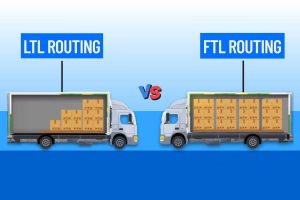In the age of online ticketing, it is important to choose the right platform for your event. The right ticketing platform can make or break an event. The platform you choose should be able to deliver not just a smooth ticketing experience but also an engaging one that appeals to your audience.
The ticketing platform should have top features that cater to both event organizers and attendees. In this blog post, we will discuss the top features of the ticketing platform that will help you choose one that works for you.
Easy to Use
One of the most important features of a ticketing platform is to be user-friendly. The ticketing platforms are those that offer a simple and intuitive layout for both organizers and attendees. A user-friendly platform minimizes user frustration and ensures a better experience for everyone. The ticket purchasing process on the platform should be simple and straightforward.
Customization
The ability to customize your event’s ticketing page can make all the difference. Look for a platform that allows you to add images, videos, and custom branding to your ticketing page. A good platform should have a variety of options to customize your event’s ticketing page without the need for coding experience. Here’s how customization plays a pivotal role in making this ticketing platform truly exceptional:
- Event Customization: Event organizers can personalize event pages with unique branding, imagery, and messaging. They can also configure ticket types, pricing, and availability based on their event’s requirements.
- Ticket Customization: Ticket buyers can often choose from a range of ticket options, allowing them to select seating preferences, ticket add-ons (e.g., VIP access or merchandise), and ticket delivery methods.
Social Media Integration
Social media is a powerful marketing tool that can help spread the word about your event quickly. A good ticketing platform should have strong social media integrations that enable event organizers to share their events on various social media platforms without leaving the ticketing page. This feature can help drive more traffic to your event and increase ticket sales.
Here’s how social media integration can benefit a ticketing platform:
One-Click Sharing: Allow users to share their ticket purchases and event plans with their social networks. This not only promotes the event but also acts as free advertising for your platform.
Social Login: Simplify the registration process by enabling users to sign in or create accounts using their social media profiles, reducing friction and increasing conversion rates.
Event Promotion: Leverage social media APIs to automatically promote upcoming events to users based on their interests and social connections, increasing event discoverability.
Post-Event Sharing: Encourage attendees to share their experiences on social media after the event, creating user-generated content that can be used for future marketing.
Chat and Messaging: Allow users to discuss and plan events with their friends directly within the platform, making it a one-stop shop for event coordination.
Mobile-Optimized
The world is now mobile-first, and it is crucial to have a ticketing platform that is mobile-optimized. A platform that can be accessed on any mobile device gives event attendees the freedom to purchase tickets at any time and from any location. Make sure your platform offers a seamless mobile ticket-buying experience. Here are some key considerations for ensuring the mobile optimization of a ticketing platform:
- Responsive Design: Ensure that the platform’s website and app have a responsive design that adapts to various screen sizes and orientations. This guarantees a consistent and user-friendly experience on smartphones and tablets.
- Mobile-Friendly User Interface (UI): Design an intuitive and mobile-friendly UI with clear navigation, touch-friendly buttons, and user-centric layouts. Keep forms and input fields minimal and easy to use.
- Fast Loading Speed: Optimize the platform’s performance to reduce load times. Mobile users expect fast and efficient interactions, so minimize unnecessary graphics, animations, and scripts that can slow down the platform.
- Simple Checkout Process: Streamline the ticket purchase process for mobile users. Implement one-click payments, offer various payment methods, and allow users to store their payment information for future transactions.
- Mobile Ticket Delivery: Provide mobile ticket delivery options, such as QR codes or mobile app integration for easy access to tickets without the need for printing.
- Push Notifications: Implement push notifications to keep users informed about upcoming events, ticket availability, and promotions. This can help drive engagement and sales.
- A well-optimized mobile ticketing platform offers convenience and accessibility, catering to a broader user base and enhancing the overall user experience. It can also lead to increased sales and customer satisfaction, making it a vital component of a successful ticketing service.
Data Analytics
The ticketing platforms provide event organizers with data and analytics that offer insights into their event’s performance. A good platform should have the ability to track ticket sales, attendee demographics, and other important data to inform future decisions.













